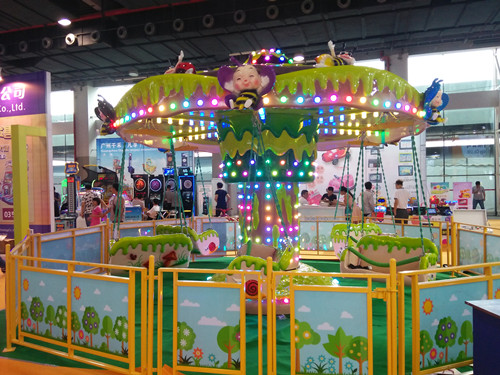
Manager Li+86 15913312777
Manager Luo+86 13924957181
NEWS |
News Details
Home>
News Details
There are many hidden dangers in local recreational facilities: insufficient maintenance and imprope
Category: Industry Information
Date: 2017-03-30
Click: 3022
Amusement equipment has certain risks, which may cause irreparable harm to tourists if not strictly managed. In fact, in the past two years, with the introduction of relevant laws and regulations, the supervision of government departments has been strengthened continuously, and the safety of large-scale operating amusement facilities has been guaranteed to a certain extent, but there are still some liquidity amusement facilities in the fuzzy zone of supervision. Large amusement facilities have complete national standards, the owner is the first gatekeeper In order to protect the safety of tourists, the general administration of quality supervision, inspection and quarantine and the quality and technical supervision bureaus at all levels shall carry out safety supervision on large-scale amusement facilities in accordance with the regulations on safety supervision of special equipment. According to Yang lvbing, deputy general manager of Beijing happy valley, amusement equipment in theme parks are generally divided into special equipment and non-special equipment. The special equipment is divided into three levels, class A, class B and class c. simply speaking, class A special equipment is the most thrilling and exciting, class B special equipment is the second, class C special equipment is the second. In addition to the degree of adventure is not the same, the quality standards are not the same. The general administration of quality supervision, inspection and quarantine of the People's Republic of China and the Beijing municipal bureau of quality and technical supervision will regularly carry out safety inspection on the amusement facilities of different grades in Beijing happy valley.
Yang Lubing said that Class A is tested by the National Special Equipment Inspection Institute, and Class B and C are tested by provincial level. Small amusement facilities are generally less dangerous, and the state does not require mandatory testing, but managers need to pay attention to their own maintenance. Large amusement facilities have a complete set of national standards, and the owners of the facilities are the first gatekeepers of safety. According to the Regulations on Safety Supervision of Special Equipment, large-scale amusement facilities included in safety supervision refer to those facilities used for business purposes and carrying passengers'amusement. The scope of these facilities is to design large-scale amusement facilities with maximum operating speed greater than or equal to 2m/s or operating height higher than or equal to 2m above the ground. The recreational facilities included in safety supervision are classified into three levels: A, B and C according to the degree of danger. The principles of classification are speed, height, swing Angle and other technical parameters. For high-speed and high-altitude recreational facilities, such as roller coasters, large-scale sightseeing cars, flying carpets and other equipment are classified as Grade A; for high-speed and high-altitude recreational facilities, such as taxiing dragon, horse-spinning, automatic control aircraft, water slide and other equipment as Grade B; for general and high-speed recreational facilities, such as bumper cars, small racing cars and other equipment are classified as Grade C. The quality and safety of grade A and B amusement facilities are guaranteed through the identification of design documents; the inspection of grade A amusement facilities with complex technology and high risk is undertaken by the national amusement facilities inspection agencies; and the inspection of grade B and C amusement facilities is generally undertaken by provincial inspection agencies. Reporters learned that large-scale amusement facilities installed in accordance with national standards, does not mean that you can rest easy on this, the certificate is "one year for a change", this year passed the test, not necessarily next year. In addition, the engineers and operators on duty should have the "special equipment operator certificate" to inspect the key equipment regularly every day, every week and every month. Previous: No information found
|

